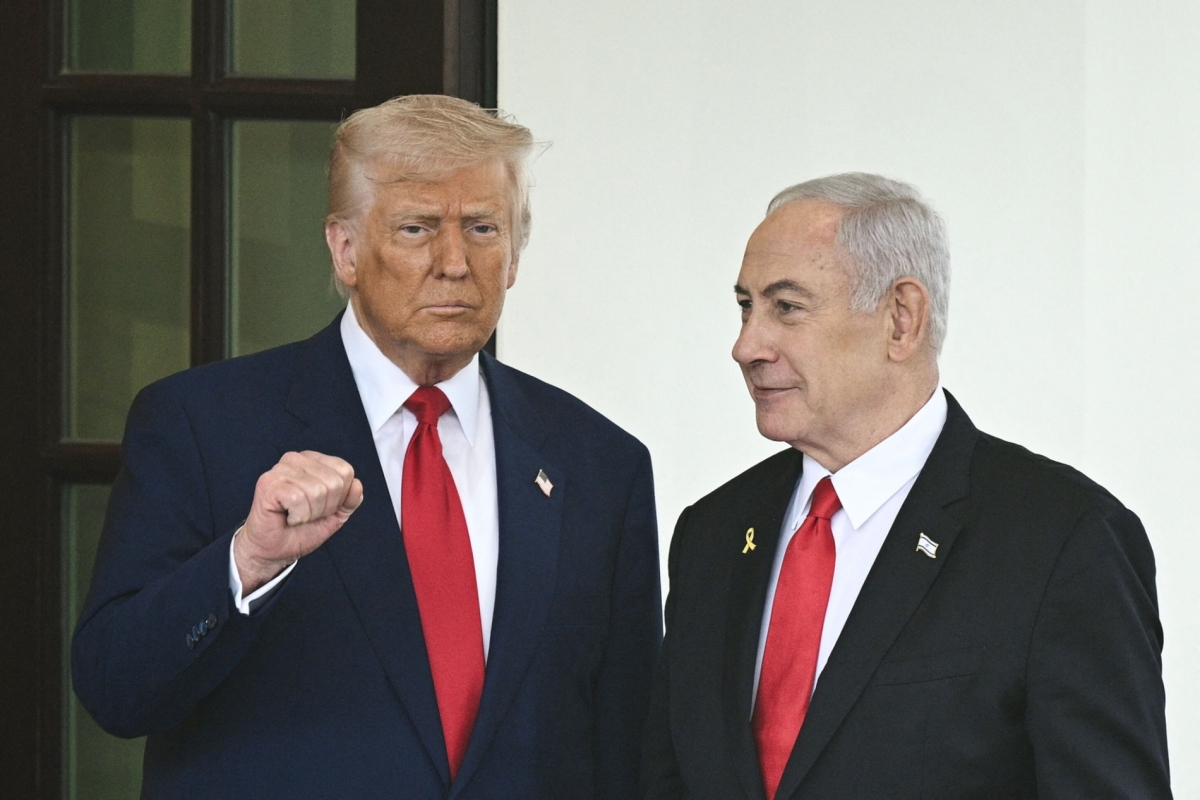Inside Trump’s plan to end the Gaza war amid Israeli rejection and Arab divisions
Al-Khamisa News Network - Gaza

Veteran political analyst Raviv Drucker told Israel’s Channel 13 that “the plan is the work of amateurs, and it will be promoted by a group of charlatans,” expressing doubt that it will achieve its goals unless Netanyahu sabotages it — noting that Netanyahu’s fingerprints and ideas appear in every letter and comma of the plan.
Meanwhile, Channel 12 correspondent Barak Ravid revealed details of what took place before, during and up to the signing of the plan, saying that Trump refused to make changes to the plan at the request of Arab and Muslim states.
He said: “The seeds of a plan to end the war in Gaza that Trump unveiled on Monday were sown three weeks earlier, when Israel attacked Qatar in a failed attempt to assassinate Hamas leaders. Trump’s advisers, Steve Witkoff and Jared Kushner, were initially shocked by the strike, but they soon saw the crisis as an opportunity to end the war, according to four people familiar with the matter. A Trump adviser who took part in the discussions said: ‘We noticed the Arabs were speaking with one voice, even if that meant shouting at Israel.'”
He added: “The Qataris grew increasingly angry and immediately suspended mediation efforts between Israel and Hamas, and began mobilizing the region and the world against Israel. A few days later, Witkoff told Israeli minister Ron Dermer that the best way to prevent further deterioration was to apologize to Qatar and show a willingness to move toward ending the war in Gaza.”
He explained: “After receiving the green light from Trump, Witkoff and Kushner began working on a plan to resolve the Qatar crisis and turn it into a broader deal to end the war in Gaza. They took the existing U.S. proposal for a ceasefire and hostage releases and merged it with the ‘day after’ plan Kushner had worked on with Tony Blair. The result was a 21-point document. A senior U.S. official said: ‘The failed strike on Doha changed the regional dynamic and opened the door to a real discussion about how to end the war in Gaza.'”
“At a meeting held last Tuesday, Arab and Muslim leaders sharply criticized Israel. After Trump affirmed his desire to end the war in Gaza, he turned to Witkoff and said, ‘Steve, tell them what you’re working on.’ Witkoff presented the 21-point plan to the group, which was met with positive responses in the room, and by Wednesday evening Washington and the eight Arab and Muslim states had reached a preliminary agreement on a text, which Witkoff and Kushner then handed to the Israelis shortly thereafter.”
The Hebrew-language television continued: “On the other hand, according to an Israeli source, on Friday morning Netanyahu delivered a tough speech at the UN without mentioning Trump’s plan at all, but talks between Trump’s team and the Israelis continued over the weekend with the aim of agreeing a text before Netanyahu arrived in Washington on Monday to meet Trump.”
Turning point
The TV report said: “On Saturday, a rumor circulated within Trump’s team that Netanyahu planned to reject the plan to end the war, or at least demand sweeping changes that would gut it, which prompted Trump to make a ‘firm and clear’ phone call to Netanyahu, according to a source familiar with the matter. The source said: ‘Trump told Bibi plainly: “Take it or leave it. If you leave, we’ll leave you,”‘ adding that Trump was fed up with Netanyahu for a number of reasons.'”
“Sources added that Trump spoke with Netanyahu five times over the weekend and made clear he would not agree to changes in the text merely to solve Netanyahu’s domestic political problems.”
“On Sunday, Witkoff and Kushner conducted hours of negotiations with Netanyahu and Dermer in New York, and the talks ended with a significant narrowing of differences, including over the wording of an apology Netanyahu would have to make to Qatar.”
Point of contention
The television report also said: “When the revised text was sent to Arab and Muslim officials, they were furious at the number of changes Netanyahu had been able to make, particularly regarding the conditions for an Israeli withdrawal from Gaza, according to people familiar with the talks. An Israeli official said: ‘Netanyahu told Trump over the weekend that he would not simply step back and allow Hamas to regroup, and Trump agreed.’ Arab states also sought to insert amendments into the text, but many of their demands were ignored. Objections were so strong that the Qataris advised Trump’s team not to publish the full plan, but he refused.”
He explained: “U.S. and Israeli officials expect a positive response from Hamas, with some reservations. Over the past day, Arab officials updated Trump’s team on the situation and hinted at a positive move from Hamas, according to a source familiar with the matter.”
He added: “Despite a joint statement from the Arab states welcoming Trump’s announcement, senior Arab officials said they believed the agreement was still under negotiation and that details had not been finalized. A senior U.S. official said there might be additional ‘adjustments,’ but Trump does not intend to reopen the entire plan for discussion.”
What next?
The report concluded: “Trump is relying on Qatar, Egypt and Turkey to pressure Hamas into agreeing to respond positively to his plan to end the war. A senior U.S. official said the prevailing assumption is that if Hamas rejects the plan it will remain isolated and ostracized in the Arab world and without funding, adding: ‘But you can’t predict that. So we hope Hamas responds positively.'”






